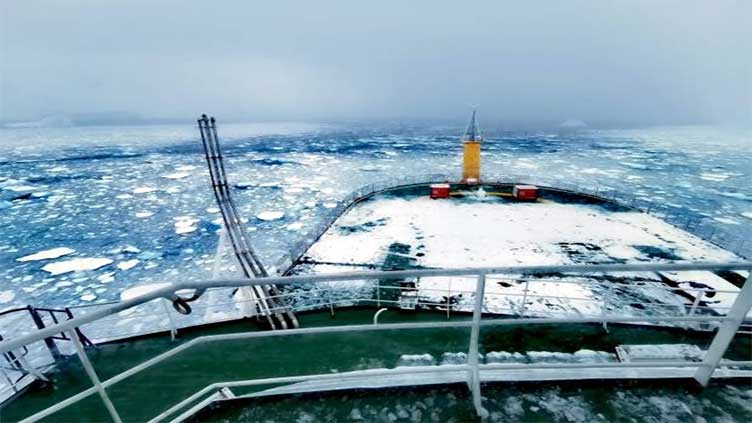Scientists embark on first-ever underwater mission in Antarctica to observe ice mysteries

Technology
The team of 12 researchers plan to observe whales and penguins
(Web Desk) - Scientists have embarked on a landmark mission in Antarctica, where they will use underwater gliders to study the impacts of climate change.
The team of 12 researchers plan to observe whales and penguins, as well as smaller creatures like krill and the transparent copepod.
They set sail from the Falkland Islands on the RRS Sir David Attenborough ship, bound for the berg-filled Weddell Sea, which is said to be the most the "treacherous and dismal region on Earth".
The ice-crushing ship, named after world-renowned British broadcaster and biologist, has undergone several polar science trials to prepare for this mission over the past few years.
The ship’s ability to break through sea ice means the team can sample from both open ocean and deep within the sea ice zone.
This is known as a difficult place to conduct science research, according to experts at the British Antarctic Survey, part of the Natural Environment Research Council.
The 10-day £9million BIOPOLE mission, taking place in early December, is the first official science cruise of the UK’s new polar research ship.
It will be the first time scientists have deployed autonomous underwater vehicles below the vast free-floating sea ice in Antarctica.
These islands of ice play a crucial role in the global carbon cycle - which could reveal how upper ocean water changes in response to the annual melt of sea ice.
Three gliders will remain along the sea ice edge as it retreats over the coming months, to collect data from a wider geographical area.
Meanwhile, another two gliders will dart between 20 and 30km under the ice to gather data from the deep.
The team of researchers consists of physicists, ecologists and biogeochemists.
Their goal is to investigate how Antarctic ecosystems and sea ice support carbon and nutrients cycles in the ocean, and how the Southern Ocean is affected by environmental change.
According to experts at the British Antarctic Survey, understanding these cycles and ecosystems is critically important following a record-breaking low in sea ice during the last Southern winter.
“We’re so excited to be the first science cruise on board RRS Sir David Attenborough," Dr Andrew Meijers, oceanographer and Chief Scientist on the cruise said.
"We’ve watched the ship being built, from the first bit of steel, and so to be the first team to use it to do science is such a privilege.
"This mission is helping us to understand how climate change is influencing and affecting the Southern Ocean and, in turn, the rest of the planet.”


